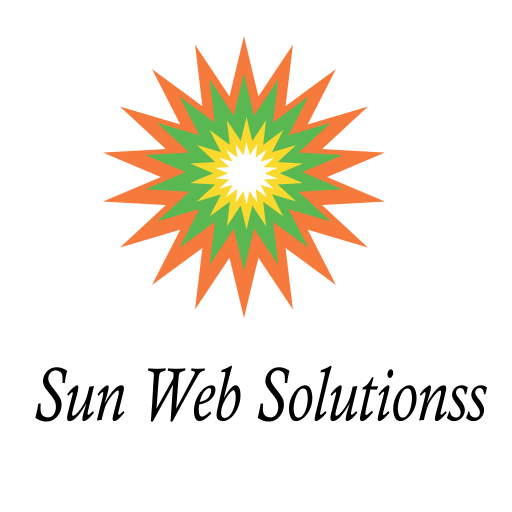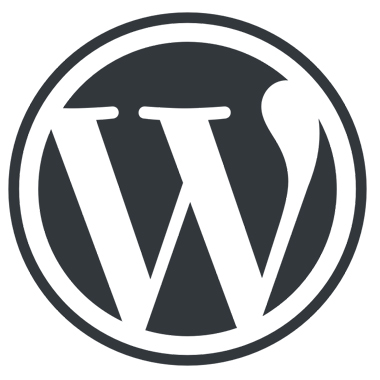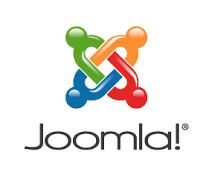Custom CMS Development
CMS provides website authoring, collaboration, and administration tools that help users with little knowledge of web programming languages or markup languages can create and manage entire website content. A web content management system(WCMS) provides the foundation for collaboration, providing users the ability to manage documents and output for multiple author editing and participation. Most of the CMS systems use a content repository or a database to store web page content, metadata information, and all information assets the system requires. Most of the CMS systems use server-side caching to improve website performance.
Open Source Content Management System
Open-source model is a decentralized software-development model which encourages open collaboration. A main principle of open-source software development is peer production, with products such as source code, blueprints, and documentation freely available to the public.
Our CMS quote for website development is one of the most competitive CMS website development cost in Coimbatore.
CMS Website Plugins Integrations
We convert your website in to feature-rich, custom-tailored software by adding custom features to your website , integrating plugins, and implementing add-ons which turn your existing content management system (CMS) to a new heights.
WORDPRESS
WordPress (WP, WordPress.org) is one of the free and open-source content management system (CMS) written in PHP and paired with a MySQL or MariaDB database.
WordPress occupy 31% of the web, which includes WordPress blogs to the biggest news sites online.
- Customizable Designs.
- SEO Friendly.
- Responsive Mobile Sites
- High Performance.
JOOMLA
Joomla is an award-winning content management system (CMS), which enables you to build web sites and powerful online applications. Joomla is popular, easy to use, stable and secure. Joomla has thousands of free extensions and templates allowing you to customize your website to fit your specific needs
- Joomla installation.
- HTML to Joomla website development.
- Joomla website maintenance.
- Joomla customization
FAQ CMS(Content Management System)
WordPress (WP, WordPress.org) is one of the free and open-source content management system (CMS) written in PHP and paired with a MySQL or MariaDB database.
Learning Management System (LMS) plugins allow you to create and run online courses like Udemy with WordPress. You will want to make sure though that you are choosing the very best LMS plugin for your online learning website. These will provide end-to-end services that include tools and features for managing your online course content, handling subscriptions, running and grading quizzes, accepting payments, and more.
Joomla is an award-winning content management system (CMS), which enables you to build web sites and powerful online applications. Joomla is popular, easy to use, stable and secure. Joomla has thousands of free extensions and templates allowing you to customize your website to fit your specific needs.
Enterprise content management (ECM)
Web content management (WCM).
WordPress
Joomla
TYPO3
Magento
Drupal
Content Management Systems (CMS) are fantastic tools for creating and managing websites, but they do have some limitations. Here are some key areas where CMS might not be ideal:
Customization:
- Limited design flexibility: While most CMS offer a good range of themes and plugins, achieving a truly unique and highly customized design can be difficult. For highly specific design needs, coding from scratch might be necessary.
- Functionality constraints: Depending on the CMS and your chosen theme/plugins, adding specific features beyond core functionality can be challenging. Complex integrations or custom functionalities might require advanced development or workarounds.
Performance and security:
- Potential performance impact: Feature-rich CMS platforms and plugins can add weight to your website, slowing down loading times. Careful selection and optimization are crucial.
- Security vulnerabilities: While most major CMS platforms prioritize security updates, inherent complexities can leave them susceptible to attack if not properly maintained.
Cost and expertise:
- Cost considerations: Enterprise-grade CMS with advanced features can come with significant licensing fees. While open-source options are freely available, they often require technical expertise for setup and maintenance.
- Learning curve: Even user-friendly CMS platforms have a learning curve. Depending on your comfort level with technology, you might need to rely on developers or training resources.
Alternatives and suitability:
It’s important to remember that CMS limitations are relative. They might not be dealbreakers for everyone. Here’s some context:
- Simple websites: For basic blogs, portfolios, or brochure-style websites, CMS limitations are often negligible. The ease of use and content management outweighs potential restrictions.
- Complex websites: For e-commerce platforms, membership sites, or highly customized applications, the limitations might be more prominent. Consider whether the CMS can accommodate your specific needs or if a custom development approach would be better.
Ease of use: Even with limited technical knowledge, you can easily create, edit, and publish content on your website. Most CMS platforms have intuitive interfaces with drag-and-drop functionality, making them accessible to users of all skill levels.
Content management: Organize and manage your website content efficiently. CMS platforms offer features like version control, scheduling, and user roles, allowing you to keep track of changes, collaborate with team members, and control access to different areas of your website.
SEO-friendliness: Many CMS platforms are built with search engine optimization (SEO) in mind, making it easier to improve your website’s ranking in search results. This includes features like meta descriptions, title tags, and keyword optimization tools.
Scalability and flexibility: As your website grows and your needs evolve, most CMS platforms offer flexibility to scale. You can add new features and functionalities through plugins and themes, adapting your website to your changing requirements.
Cost-effectiveness: Compared to custom development, CMS platforms can be significantly more cost-effective, especially with open-source options. This makes them ideal for startups, small businesses, and individuals with budget constraints.
Security: Reputable CMS platforms prioritize security and regularly release updates to address vulnerabilities. This gives you peace of mind knowing your website is protected from potential threats.
Community and support: Many CMS platforms have large and active communities of users and developers. This means you can easily find helpful resources, tutorials, and support when needed, whether through forums, documentation, or even professional services.
Integration potential: Most CMS platforms offer integration with various third-party services for email marketing, analytics, social media, and more. This allows you to connect your website with other tools and expand its functionality.
Faster development: Compared to building a website from scratch, using a CMS can significantly speed up the development process. This is because you can leverage pre-built themes, plugins, and functionalities, saving time and resources.
Mobile-friendliness: Many CMS platforms offer responsive themes and mobile-first design features, ensuring your website looks good and functions seamlessly on all devices, including smartphones and tablets.
There are several different types of CMS, each with its own strengths and weaknesses, catering to specific needs. Here’s a breakdown of some key categories:
By Functionality:
- Web Content Management System (WCMS): The most common type, ideal for managing websites with public-facing content like blogs, news sites, and business websites. Examples: WordPress, Wix, Squarespace.
- Enterprise Content Management System (ECM): Focuses on managing internal documents and information within organizations. Used for document collaboration, compliance, and knowledge management. Examples: Microsoft SharePoint, IBM Filenet, Alfresco.
- Digital Asset Management System (DAM): Manages and organizes digital assets like images, videos, and audio files. Used by marketing teams, designers, and media companies. Examples: Adobe Experience Manager, Canto, Nuxeo.
- Component Content Management System (CCMS): Creates and manages reusable content components for consistent brand messaging across multiple platforms. Used by large organizations with complex content needs. Examples: Adobe Experience Manager, SDL Tridion, Oracle WebCenter Content.
By Deployment:
- Open-source CMS: Freely available software with customizable code, offering flexibility and affordability. Requires technical expertise for setup and maintenance. Examples: WordPress, Drupal, Joomla.
- Proprietary CMS: Licensed software with pre-built features and support from the vendor. Often easier to use but less customizable and potentially more expensive. Examples: Adobe Experience Manager, Sitecore, Kentico.
- Software-as-a-Service (SaaS) CMS: Cloud-based platform with subscription fees. Offers ease of use, automatic updates, and scalability. Examples: Wix, Squarespace, Shopify.
Other types:
- Headless CMS: Separates the content management system from the front-end presentation, providing flexibility for delivering content to various devices and applications. Examples: Contentful, Prismic, Konten.
- E-commerce CMS: Specifically designed for building online stores, integrating product management, payments, and shipping functionalities. Examples: Shopify, BigCommerce, WooCommerce.
Choosing the right CMS depends on your specific requirements, budget, technical expertise, and the type of website you’re building. Consider factors like content complexity, desired features, scalability, and security needs when making your decision.
Determining the “Top 10” CMS names is subjective and depends on various criteria like popularity, features, specific needs, and target audience. However, here are 10 widely recognized and popular CMS platforms, each with its strengths:
WordPress: The undisputed king of CMS, powering over 43% of all websites globally. Renowned for its user-friendliness, vast plugin and theme ecosystem, and open-source nature.
Wix: A popular website builder known for its drag-and-drop interface, ease of use, and beautiful templates. Ideal for beginners and those wanting a quick and visually appealing website.
Squarespace: Similar to Wix, Squarespace offers a user-friendly website builder with stunning templates and marketing tools. Well-suited for creative professionals and small businesses.
Shopify: The leading e-commerce platform, empowering millions to build and run online stores. Offers comprehensive features for product management, payments, shipping, and marketing.
Joomla: Another open-source CMS known for its flexibility and scalability. Popular for complex websites and those requiring in-depth customization.
Drupal: A powerful and secure open-source CMS favored by developers and organizations for complex websites, enterprise-level features, and robust security.
Magento: A feature-rich e-commerce platform acquired by Adobe, catering to large businesses with high-volume stores and demanding needs.
Contentful: A headless CMS gaining traction for its flexibility and ability to deliver content to various platforms and devices. Popular for content-heavy websites and omnichannel strategies.
Sitecore: An enterprise-grade CMS offering robust marketing automation, personalization, and omnichannel content management capabilities.
HubSpot CMS: A marketing-focused CMS integrated with HubSpot’s CRM and marketing tools, ideal for businesses seeking an all-in-one solution for website management, marketing automation, and lead generation.
Remember, the “best” CMS depends on your specific needs and priorities. Carefully evaluate your requirements, budget, and technical expertise before making your choice.
Talk to us at 91 9442773903 or Email us to sunwebss@gmail.com



